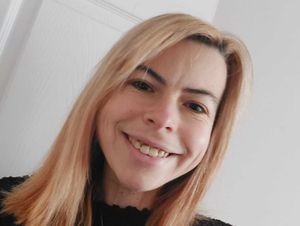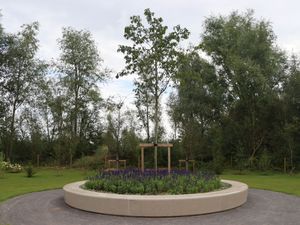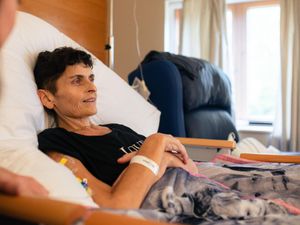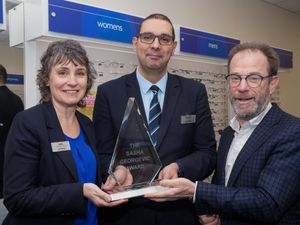'Flavoured lollipops' that could show early mouth cancer signs backed by Wolverhampton woman
A tongue cancer survivor from Wolverhampton has hailed a project which is developing “flavoured lollipops” that may be able to determine whether someone has mouth cancer without using painful and invasive methods.

Dr Ruchi Gupta at the University of Birmingham has been awarded £350,000 over the next three years by Cancer Research UK and the Engineering and Physical Sciences Research Council (EPSRC) to make a prototype flavoured ‘lollipop’ from a material called a smart hydrogel.
Smart hydrogels work a bit like a fishing net – they absorb large quantities of water whilst “catching” larger molecules, such as proteins.
The ‘net’ can then be cut open to release the larger molecules for analysis in the lab.
The ‘lollipop’ will be created from a smart hydrogel previously developed by Dr Gupta and her team.
The idea is that patients suck on the lollipop, transferring a saliva sample into the hydrogel.
Scientists can then release the ‘caught’ proteins by blasting the hydrogel with UV light and then analyse the liquid for saliva proteins which indicate the early stages of mouth cancer.
Around 12,400 people are diagnosed with cancers of the head and neck in the UK every year.
Currently, diagnosing mouth cancer can involve putting a flexible camera on the end of a tube through the nose or mouth and taking a biopsy for testing.
This procedure is invasive, time-consuming and requires an endoscopist.
Dr Gupta, associate professor of biosensors at the university, said she was thrilled to receive funding to begin the next phase of the project.
“Smart hydrogels have really exciting potential for diagnosing mouth cancer,” she said.
“They can be easily moulded into shapes as a solid to ‘catch’ proteins in saliva.
“We’re really excited to start the next phase of this project. We’re hoping that we can be the first to make a device which is much kinder for diagnosing mouth cancer for patients and easier for GPs to use.”
Faye Bishop, from Wolverhampton, needed a biopsy after being referred to New Cross Hospital with a lump on her tongue in 2013, aged just 27.
After the procedure, the nursery nurse was devastated to learn that she not only had tongue cancer, but that it had spread to the lymph nodes in her neck.
“I think the lollipop idea is brilliant because it will be much less daunting for people,” said Faye.
“I remember being very anxious when I had my biopsy. The procedure itself was bad enough but the fear of knowing I might have cancer made it so much worse.”
Faye underwent extensive surgery to reconstruct her tongue as well as chemotherapy and radiotherapy.
She was unable to eat or speak for six months and had to have a tracheostomy as well as a feeding tube into her stomach.
“Doctors thought I might never be able to eat or speak again but I was absolutely determined so just kept practicing my speech,” said Faye.
“Thanks to my parents being there for me and bribing me to eat with pieces of cake, I slowly got better.
“If this new diagnostic tool becomes a reality, then I’m sure it will help people feel more at ease. I know the devastating effects that mouth cancer can have if not diagnosed early so anything that encourages people to get tested at the earliest opportunity is absolutely priceless.”
Executive director of research and innovation at Cancer Research UK, Dr Iain Foulkes, said: “Biopsies and nasoendoscopy are the gold standard for diagnosing mouth cancer, but it requires great skill to carry out and can feel unpleasant for patients.
"We want an accurate, faster and kinder alternative test which can help us diagnose cases of mouth cancer sooner.
“This project is an exciting first step towards an entirely new way to identify mouth cancers earlier. Research like this is guiding us towards a future where people can live longer, better lives, free from the fear of cancer.”





